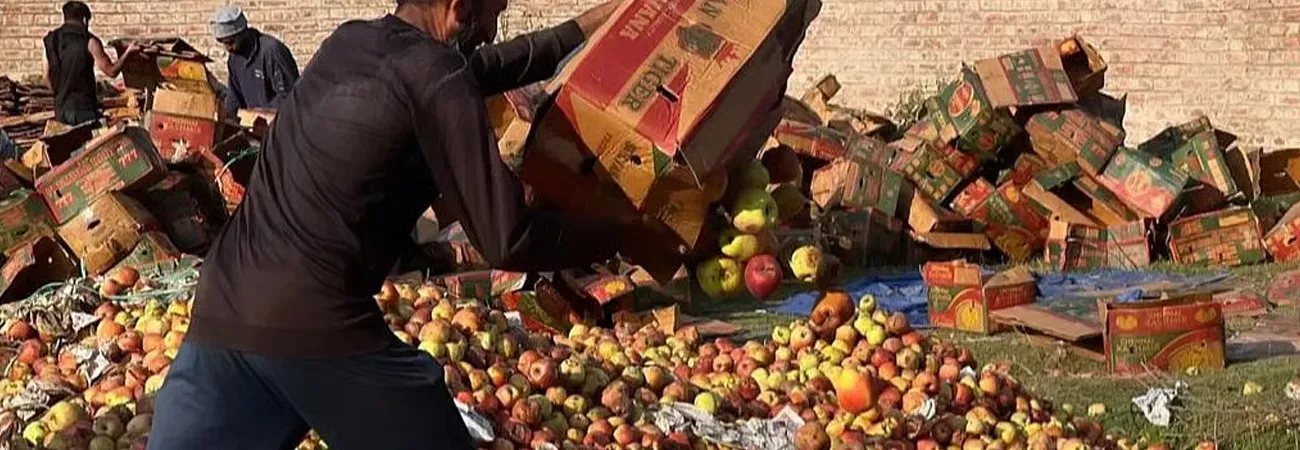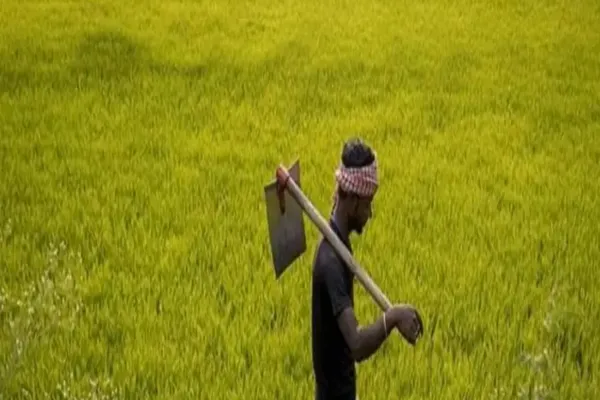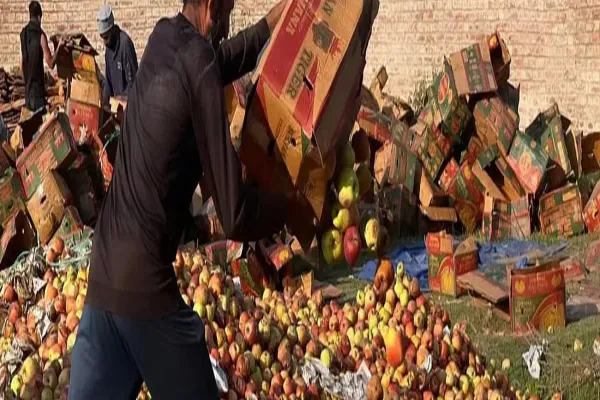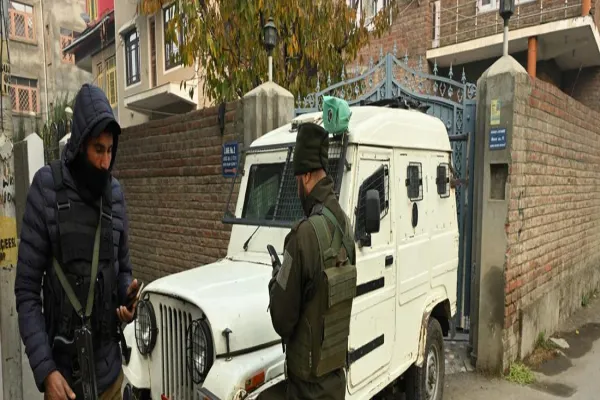i NEWS INTERNATIONAL
Kashmiri fruit growers and traders have accused the authorities of systematically pushing the Valley’s horticulture sector toward collapse by denying compensation, failing to regulate markets, and allowing repeated disruptions on the Srinagar–Jammu highway to ruin perishable produce. According to Kashmir Media Service, the All Valley Fruit Growers and Dealers Association (AVFGDA) said the recent highway blockade during peak harvest season inflicted over Rs 2,000 crore in losses, yet the authorities have shown no intention of providing relief.
Addressing a press conference at Fruit Mandi Sopore, AVFGDA Chairman Bashir Ahmed Basheer said the shutdown of the only all-weather road link has “crippled fruit transportation”, leaving growers in severe financial distress. He said the silence of both New Delhi and the local administration has reinforced the perception that losses suffered by Kashmiri fruit traders are not accidental but a result of deliberate indifference.
Basheer said horticulture forms the backbone of Kashmir’s economy, with over 80 percent of the population dependent on it, yet the sector continues to be ignored despite repeated appeals. He said that the refusal to announce compensation or emergency measures amounts to economic strangulation of Kashmir’s most vital livelihood. The association further warned that escalating input costs, the availability of substandard and fake pesticides, and the absence of government regulation have compounded the crisis.
Poor-quality pesticides, Basheer said, are “damaging the produce” and “increasing cultivation expenses manifold”—a burden growers believe is being imposed on them without accountability. Growers also linked chronic losses to the failure of authorities to provide Crop Insurance Scheme (CIS) in the Valley. While the Jammu region benefits from CIS despite being far less dependent on horticulture, Kashmir remains excluded.
This discriminatory denial, growers say, leaves them helpless in the face of recurring highway closures, natural disasters, and market shocks. The association highlighted that Kashmir has only 80 Controlled Atmosphere (CA) stores, whereas at least 200–250 are required. Had storage capacity been expanded in time, Basheer said, “we could have held our produce during road blockages and avoided large-scale losses.”
Credit: Independent News Pakistan (INP)









